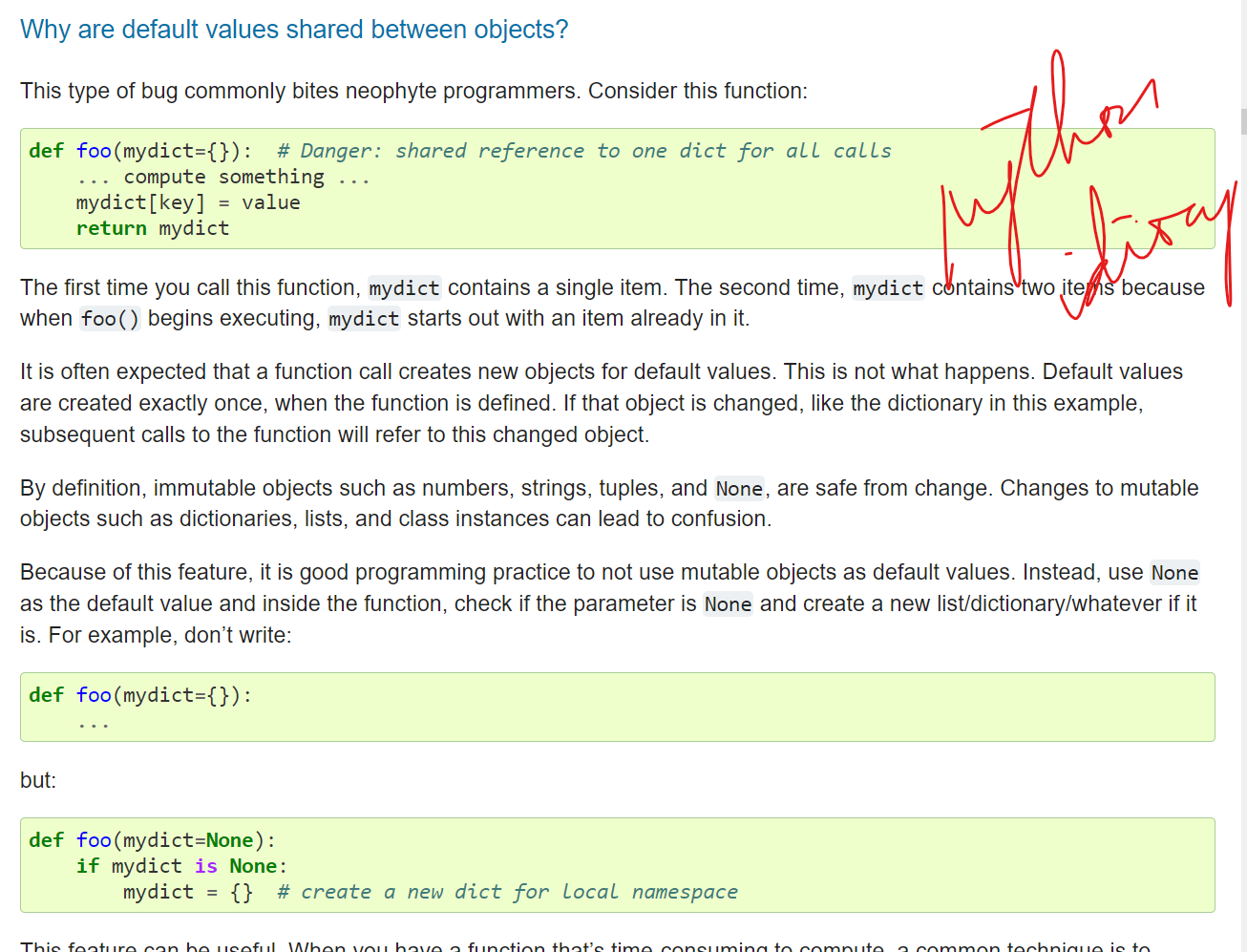Python: Function Argument Default Value Wrong
Python function's default value for argument has side effects.
when you call the function the second time, the default value has its previous value.
same problem in python 2 and 3.
Example:
def f(xx, yy=[]): yy.append(xx) return yy print(f(1) == [1]) print(f(1) == [1, 1]) # wtf
this example is from the official Python tutorial. 4. More Control Flow Tools — Python v2.7.6 documentation#default-argument-values
explained as follows:
Important warning: The default value is evaluated only once. This makes a difference when the default is a mutable object such as a list, dictionary, or instances of most classes.
solution:
make the default to be None, then, in the code, check if it is None, assign the default value you want.
def f(xx, yy=None): if yy is None: yy = [] yy.append(xx) return yy print(f(1) == [1]) print(f(1) == [1])
the worst programing language design, yet the python priests write the doc as if it is a great feature.
